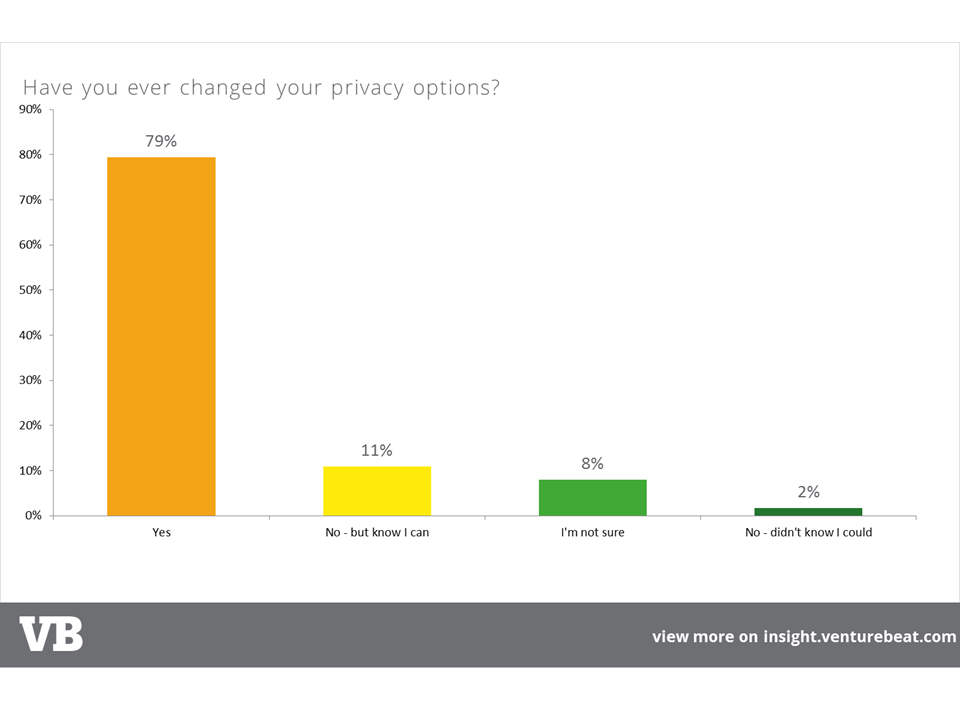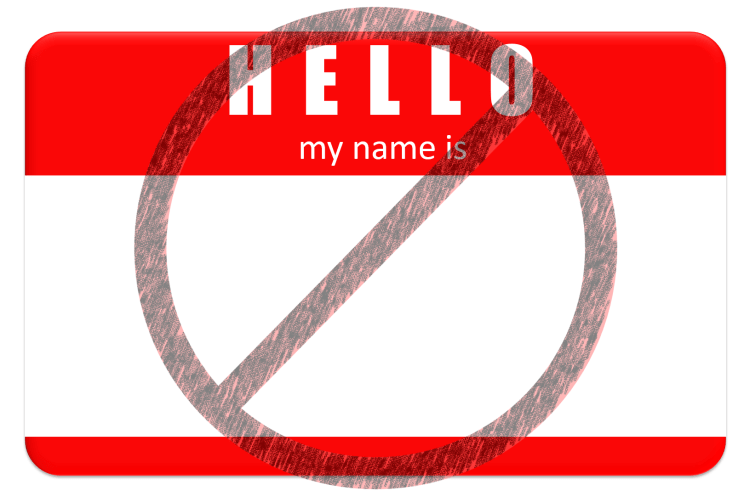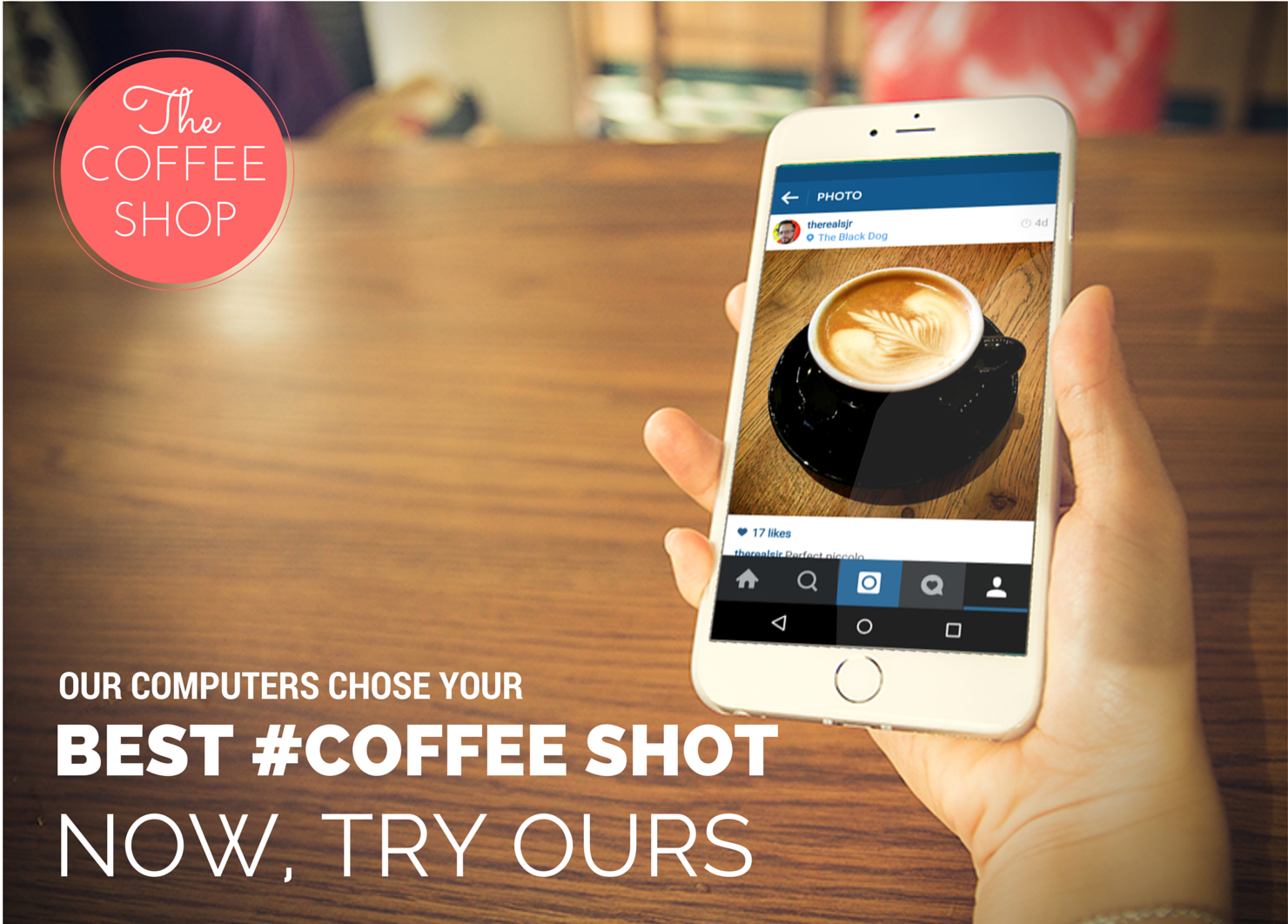We know that using personalization in marketing works, and we are fast heading toward a future where hyper-personalization will become the norm.
But those who wish to reach the utopia of “one-to-one marketing” have a number of hurdles to leap, one of which is a key finding in my latest State of Marketing Technology report, released today on VB Insight.

It turns out that not only does almost everybody know how to manage and control their privacy settings, almost 80 percent of people have done so.
And as Gerhard Stiene put it in his recent article on ad-blockers, “privacy and targeting are oil and water.”
But privacy settings and limited access to personally identifiable information are not the only barriers for those brands that want to speak to you as if they know you. Or, at the very least, give you the illusion of personal communications.
In researching my report — “Hyper-personalization: What customers want, and what they hate” — I found that consumers are just not ready for some types of personalization.
I discovered that while consumers are happy for you to use their age and gender in personalized advertising, they simply aren’t ready for you to use their own content (such as Instagram pictures) in ads, or interlace publicly available fitness data from wearable devices into ads or offers. Using a home address in an area deemed “public,” (even if it is not, such as a advertisement on Facebook) is also a big no-no.
But it isn’t all bad news in the world of personalized marketing, and while 96 percent of American consumers are concerned about data privacy, they also crave that personal touch.
Hyper-personalization: What customers want, and what they hate
is now available on VB Insight for $499, or free with your marketing tech subscription
In fact, I found that 77 percent of “digital natives” — those who have grown up using technology such as the Internet, computers, and mobile devices — fully expect a personalized website experience. Of course, these future customers may want websites to be more personalized, but marketing tactics are no good unless real results are forthcoming.
Fortunately, they are.
Personalized website content increased page views for one company I studied by 300 percent, and another saw an increase in conversion rate of 219 percent.
In total, I surveyed over 1,700 consumers, using data from Survata. I also spoke with and interviewed a number of experts to determine the future of hyper-personalization, and help create a playbook for one-to-one marketing. In the report, I tackle a number of topics, including:
- What drives consumers to provide personally identifiable information.
- The complexity of the rules, regulations, and laws that come into play when considering one-to-one marketing and personal data.
- What consumers are ready to let you use in advertising and what creeps them out.
- How big the market for smart beacons is and what they (and location data in general) will mean for the future of retail.
- Best practices for on-boarding personalization in marketing.
Our experts? They include the likes of Tyler Lessard at Vidyard, Tapajyoti Das at LeadSift, Jay Calavas and Mike Anderson at Tealium, Robert Wahbe at Highspot, Neil Capel at Sailthru, Rebecca Schuette at Swirl Networks, Josh Todd and Lou Orfanos at Localytics, and Jim Crowley at Skyhook Wireless.
Personalization in marketing is going to be deeply important, even if — right now — 80 percent of marketers find it hard to implement one-to-one marketing systems. In order to highly personalize a communication, marketers need to have, understand, and use personal information. Calling someone by name is easy, but you need much more.
The first milestone on the road to personalized marketing is understanding how consumers feel about it, and this research will help move the train forward for the benefit of both the marketer and the customer.
Hyper-personalization: What customers want, and what they hate is now available on VB Insight.
VentureBeat's mission is to be a digital town square for technical decision-makers to gain knowledge about transformative enterprise technology and transact. Learn More


